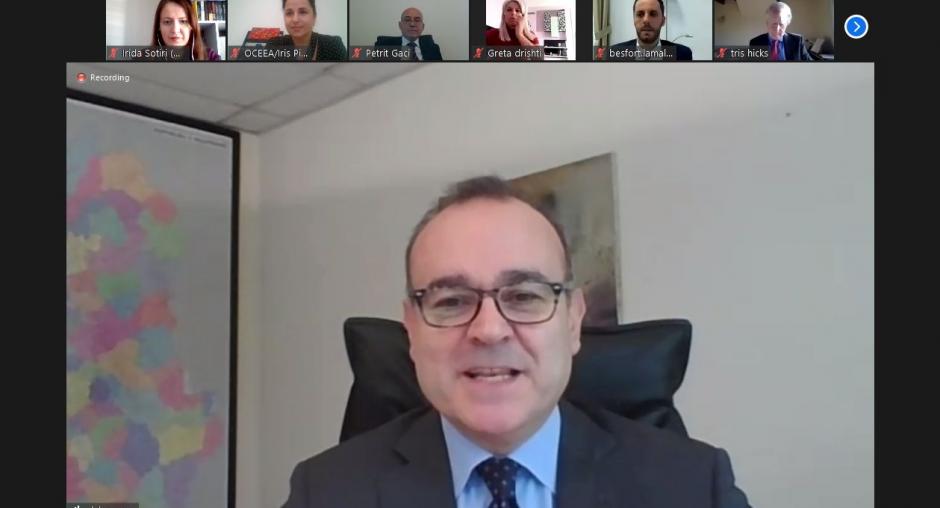Importance of social re-use of assets recovered from organized crime and corruption focus of OSCE workshop in Albania

The importance of the social re-use of assets recovered from organized crime and corruption as a public good, and the potential lever it creates to reduce crime and corruption was the focus of an online workshop the OSCE held for participants from Albania on 24 November 2020. The event brought together law enforcement practitioners and representatives of the Agency for the Administration of Seized and Confiscated Assets, local and international civil society organizations and academia.
This event was the first in a series of national workshops organized as part of an extra-budgetary project to strengthen the fight against transnational organized crime in South-East Europe through improved regional co-operation in asset seizure, confiscation, management and re-use. The OSCE Secretariat’s Transnational Threats Department and the Office of the Co-ordinator of OSCE Economic and Environmental Activities are jointly implementing the project.
Opening the workshop, Vincenzo del Monaco, Head of OSCE Presence in Albania, said: “I am convinced that a regional perspective and approach is paramount when tackling the multi-faceted subject of today’s exercise. The OSCE, for its own nature, is in an ideal position to facilitate this exchange of views and experiences among key actors.”
Over the course of the workshop, participants explored the opportunities and challenges in the current social re-use system in the country, relevant provisions in the legislative framework, the models used in other countries, and potential measures to address existing gaps.
The United States Ambassador to Albania, Yuri Kim, said: “When countries are successful at identifying and seizing illicitly-obtained assets, it not only targets criminals where it hurts the most — their dirty money making – but it also discourages criminal activity. Those assets can be responsibly repurposed to advance social good and demonstrate to the public that fighting organized crime is a responsibility shared by all, because it affects all of us.”
Luigi Soreca, the European Union’s Ambassador to Albania, said: “The fight against organized crime and corruption is a key priority for Albania on its path towards European integration. We are proud to have helped Albania in establishing the first social enterprises that make use of confiscated assets, an unprecedented undertaking not only in Albania but in the region as well. We see it as an important victory of civil society against organized crime, sending the clear message that what is stolen can and should be given back to society.”
Albania’s Deputy Interior Minister, Besfort Lamallari, outlining recent reforms and enhanced inter-agency co-operation, added: “Criminal asset recovery, including social re-use serves as the perfect example of turning the tables, by giving back to the society and affected crime victims what has been taken away from them by criminals. In the fight against organized crime and corruption, the government and law enforcement agencies are in the forefront, but citizens, both individually and collectively, have and can play an indispensable role. The symbolic message of social re-use of confiscated criminal assets is clear enough to anyone misled by or prone to wrong calculations or perceptions of easy money, with little or no risks. Crime doesn't pay!"
The project is financially supported by the United States Department of State, Italy, Germany and the United Kingdom.
